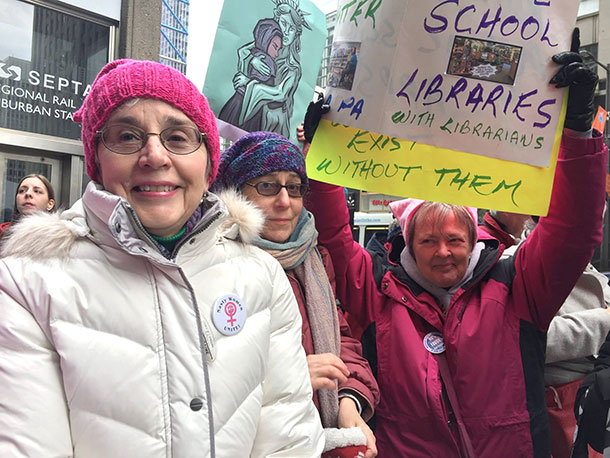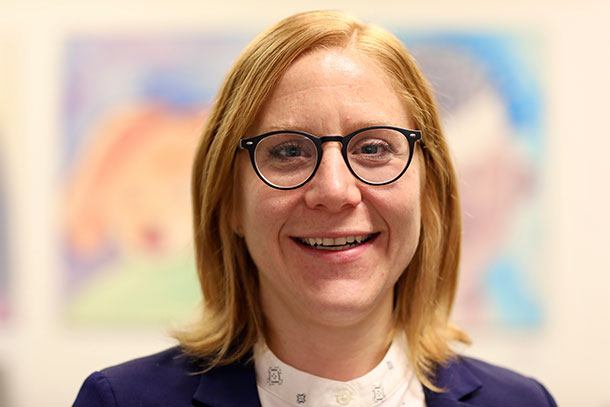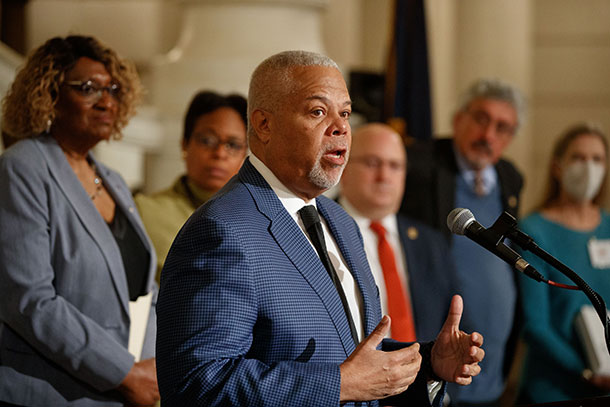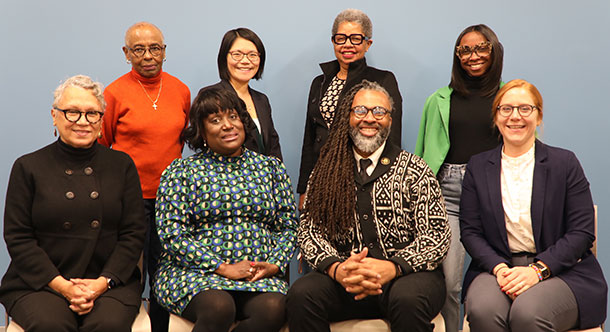Education
Philly’s Board of Education mayoral appointment process: A City & State analysis
Philadelphia’s school board is appointed, not elected – for better and for worse.

Is Philly’s appointed school board helping or hurting? joebelanger/Getty Images
Two school districts in the state, including the Altoona Area School District, now allow their police officers to store and use semi-automatic rifles on school premises. Central Bucks School District board members are making headlines for attempting to pass a controversial book ban that seeks to keep books they have unilaterally deemed “inappropriate” out of libraries. And the conservative activist group Moms for Liberty, which focuses on pushing its right-wing agenda into school board elections, continues to expand its reach across the state: it now has a presence in at least 27 of the commonwealth’s 67 counties.
Philadelphia's own Board of Education is not immune to controversy and scrutiny. It has long been a flashpoint in the city – not for clashes between parents and board members over cultural debates but for its unique position as an unelected board – 498 of the state’s 500 school districts have elected boards, while Philadelphia and Chester Upland appoint theirs.
With a vast number of the city's schools in need of major repair and new leadership at the district and board level, the city’s school board – like school boards across the country – finds itself in the crosshairs of parents, educators, politicians and advocates.
“It’s shocking that in the birthplace of American democracy, we don’t have the power to elect people who are really, really important,” Lisa Haver, a retired public school teacher and co-founder of the Alliance for Philadelphia Public Schools, told City & State. “We can’t pick people based on who they are, what their background is, or whether they believe in privatizing public schools.”
The fight for local control of Philadelphia’s schools goes well beyond the Board of Education. It began 16 years ago, dating back to the creation of the School Reform Commission, when residents realized they had little say in how their schools were operating.
Winning back local control
The SRC was formed in 2001 amid the district’s ongoing financial woes. The combination of a recession and a Republican governor slashing education funding ultimately led to the district being designated as distressed – both financially and academically – and the state's years-long effort to take over the system and turn it around.
With two members appointed by the mayor and three appointed by the governor, the SRC took over, leaving many Philadelphians up in arms and educators, union members and activists speaking out against the move.
Over the next decade, several city officials joined the SRC’s critics and claimed it was abusing its authority. Following more protests and court challenges, the SRC was dealt a final blow by the state Supreme Court in 2016 and officially disbanded the following year.
Formation of the Philly Board of Ed
With the SRC out of the picture, a city-run Board of Education – instated in July 2018 – was thought to be a step in the right direction. And while most agree the public school system is better off now than it was when under Harrisburg’s jurisdiction, the city adopted a new set of rules.
“When the SRC dissolved itself and the school board was returned to Philadelphia, it set a lot of expectations,” Philadelphia City Councilmember David Oh told City & State. “But very quickly, it was pretty much nonresponsive to the public and there were a lot of complaints.”
The school board’s appointment process is a combination of public and private meetings where the nominees are vetted and City Council members vote on their final approval.
The mayor’s nominating panel consists of four members representing the public at-large and nine members representing sectors related to education, labor and more. It considers applicants for the board, conducts multiple rounds of interviews with potential members and provides recommendations to the mayor, who in turn sends a list of recommended nominees to be approved by City Council. What many education advocates and city officials argue is that the board’s appointment process – where nominees for a mayor-appointed panel are reviewed by a mayor-appointed panel – shields the body from public accountability.

“In any other place … you vote for people and you vote for people based on what they say, what they stand for and what they want to do for their constituents,” Haver said. “If people say ‘Hey, I want to have more charter schools,’ you might vote for them and I might vote against them. But at least I know what they’re coming in there to do.”
While much of the board’s appointment and approval process may take place behind closed doors, the public does have opportunities to weigh in and comment on nominees. Mallory Fix-Lopez, the newest vice president of the Board of Education, told City & State the appointment process is democratic and approved by the city’s executive and legislative branches.
An elected school board, she argued, would lend itself to the types of perennial political issues that plague other elected positions and deter education advocates from getting involved. “We are appointed by the mayor, but we are appointed with the direction of making decisions that are in the best interests of the kids of Philadelphia,” Fix-Lopez said. “I think if you have elected board members who have to focus more on special interests and campaign financing, it takes your eye off the best interest of the kids. The scope of work is too big. There is no way that you can manage both.”
Public process v. politics as usual
With the next mayoral primary a few months away, many see this year as a turning point in the discussions regarding the school board’s governance. The board’s term expires when Mayor Jim Kenney leaves office next January and the district has nearly $5 billion in unmet capital needs, including deferred maintenance, buildings with asbestos and buildings without adequate air conditioning.
Some officials suggested issues arise not necessarily as a feature of the appointment process, but a symptom of an executive who’s appointing out-of-touch nominees. If that were the case, the disconnect between the board members and the public could be drawn back to the appointer, Kenney himself.
State Sen. Anthony Williams, a Philadelphia Democrat and longtime school choice advocate, largely agreed. He told City & State that issues with the board have “more to do with who you’re appointing and their agenda, as opposed to them listening to the superintendent, the teachers, the students and the parents.”

In an email, the mayor’s office defended the appointment process, stating that the city’s future “belongs in the hands of its residents.”
“Having a mayor-appointed school board made up entirely of Philadelphia residents offers far greater local accountability for the management of Philadelphia’s public schools, which is why in 2017 Mayor Kenney led the effort to disband the state-run School Reform Commission,” Sarah Peterson, communications director for Kenney, said in a statement. “The mayor has consistently appointed highly qualified Philadelphians with relevant professional and personal experience relating to public education and school governance.”
With an ongoing debate over the Board of Education’s appointment process and governing structure, the question for city officials remains: with so much at stake in the coming year, what’s the best method for operating the city’s school board?
A new regime
At the beginning of the year, the district’s current leadership was still getting situated. Superintendent Tony Watlington Jr. took over after William Hite stepped down last June and new board members were appointed in December. Fix-Lopez said the school district is in better shape in terms of accountability than when it was run by the SRC – but there is always room for improvement. “There is potential for any mayor to change it up. We have terms, and even if you are reappointed, the maximum amount of years you could serve will be three mayoral terms,” she said.
Fix-Lopez highlighted the board’s communication channels, noting that aside from board meetings – where their public comment policy is currently in litigation – the board receives emails, direct messages and a constituent log regularly.
“We are very accessible, much more accessible than the SRC ever was,” Fix-Lopez, who was first appointed to the board in 2018, said. She also argued that many of the grievances residents have with the school district are outside of the board’s control, and that coming out of the pandemic, progress is finally being made.
“I'm a lifelong educator, formerly worked in the school district and have been a resident of Philadelphia for over 20 years. I wouldn't still be on the board four years later if I didn't believe that we were going in the right direction,” she said.
Regardless of the direction board members think the district is going in, many residents still believe their efforts to promote transparency and help the public understand their decision-making processes are coming up short.

Walette Carter, the new president of the Philadelphia Home and School Council, is leading the organization as it focuses on empowering parents and caregivers to become education activists. She dismissed arguments that an elected board would lead to seats being bought by special interests, stating that having an educated school community and advocates that can hold officials accountable is the way to ensure an elected board doesn’t succumb to politics.
“We’re going to make it so that the people of Philadelphia – the communities, the parents, teachers, the students – have a voice in their education … right now, they don’t,” Carter told City & State.
What’s next for the school district
Oh offered one proposal that has yet to garner support from the rest of City Council. Just getting the conversation started, he said, is a step in the right direction.
His proposal would divide the city into five districts that elect the majority of the board, leaving the other four seats to be nominated by the mayor. Creating five districts, which would consist of conjoined councilmanic districts, would ensure a board majority that’s duly elected. And while there is no sign it will gain traction in the near future, council members are open to discussing reforms.

“We’re exploring every type of governing option out there to be able to put ourselves in a position to provide the best service for our children as well as the adults that take care of our children,” said City Councilmember Isaiah Thomas, chair of the Education Committee.
Where the mayoral candidates stand
City & State reached out to every mayoral candidate asking if they were in favor of an elected school board. Not all responded, but those who did recognized issues with the board’s transparency – and none committed to changing the way the board is selected. Here are their responses:
Allan Domb
"I will provide clear leadership for the Board of Education … The current appointment system ensures diversity on the school board, creates a clear reporting structure, and allows for a cohesive funding strategy for Philadelphia schools."
Derek Green
"Those elections become big-money races … I wouldn’t want to see our issues of education become a battle, once again, between labor and charter school interests."
Helen Gym
"The most important priority is a unified vision between the mayor and the school district to invest in our schools. For far too long, the school district and city have not effectively collaborated to solve the most pressing problems facing youth."
Rebecca Rhynhart
"The current appointment model creates an opportunity for a mayor to take ownership and have accountability from the board to create true change. As mayor, (I) would appoint a school board that shares (my) vision for the fair, equitable and high-quality education that all of Philadelphia’s students deserve."
NEXT STORY: A Q&A with state Sen. Sharif Street
